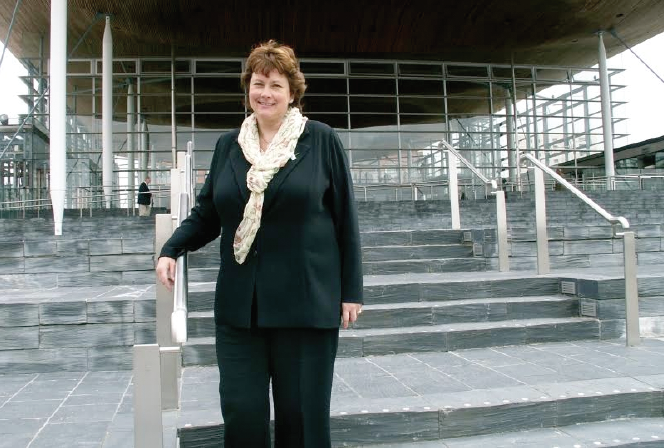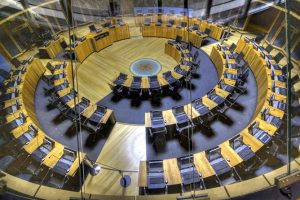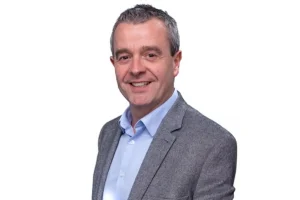WE’LL start this interview with an end and at the very end.
Three weeks ago, Carmarthen West and South Pembrokeshire MS Angela Burns announced she would step down at next May’s Welsh Parliamentary elections.
Angela Burns was first elected to the then Welsh Assembly in 2007, propelling her party from third to first place in Camarthen West and South Pembrokeshire as she unseated former Welsh Government minister Christine Gwyther by just over 100 votes in a three-way battle with Plaid Cymru’s John Dixon.
She increased that majority to 1,500 in 2011 and more than doubled it in 2016.
But, Angela Burns made clear, stepping down from the Senedd doesn’t mean she won’t continue her involvement in local life.
MISSING CARDIFF BAY
However, turning things on their head, at the end of the interview we asked her what she would miss most about life in the Welsh Parliament.
There was a long pause as Angela Burns looked reflective.
The interview had been refreshingly candid from the start and, for one moment, the thought occurred that she would say ‘nothing’.
But it turned out the Conservative MS had been gathering her thoughts.
“It may sound a bit niche,” she began, “but Committees.”
Committees. Hardly the most obvious answer.
Angela Burns continued: “A really good committee with a really good Chair can do a lot of good. Scrutinising specific areas of policy, getting to grips with how things work and how policies affect people’s lives is really rewarding.
“In this Senedd term, I can point out the work of the Children, Young People and Education Committee. It’s been brilliantly chaired by Lynne Neagle, the Labour MS for Torfaen. The Committee has done exceptional work, produced important reports, held the Welsh Government to account, and has given clear recommendations on what should be done.
“The Government can’t hide from Committee reports. That committee members work across party lines can give them more force. Whether they follow their recommendations or not, the time always comes when the Government is reminded of why and when a committee made a recommendation to address an issue which comes forward for debate.”
BEING ‘A DOER’
That answer gives an insight into what motivates Angela Burns.
In her own words, she’s ‘a doer’. She wants to be active, to influence decisions, to get things done.
It turns out that’s been one of the frustrations of being in opposition in the Welsh Parliament.
“If you’re in the opposition, there is not a lot you can do to influence the direction of government policy – especially in Wales, where Labour has been in power for so long. You’re always on the outside of making the really important choices, the decisions that matter to the people we’re elected to represent. You can point out what’s wrong with a decision, criticise if you have to criticise, but you have no input on the final decision.
In the last Senedd term, I was a Commissioner of the Assembly. I found that fulfilling. The ability to take decisions which had an effect matters to me. Coming from a business background, I’m used to getting things done and being a Commissioner allowed me to do that.”
STEPPING DOWN
With the Conservatives publicly confident of breaking through at next May’s elections, we wondered why this was the moment she chose to step down. With the prospect of being able to make the decisions that count, why step down now?
“Paul (Davies) made the same point to me. Several times over the last year, he asked me to stay on. He pointed out how well we were doing in polling and that there was a real prospect of forming a Conservative administration. But I made a promise to my family. When I stood for election in 2007, I said it would be only for two terms. I thought two terms was enough for any politician. When I got to what was then the Assembly, I realised it would take more time to learn enough to make the experience count. I stood again in 2016 but promised my family that’d be it. And it is.”
She reflected: “I watched a programme recently where they were talking to MPs. One MP, I can’t remember who it was, had been a Member of Parliament for forty years. I found myself wondering: how much he can know about his ordinary constituents’ lives after four decades in Westminster? I think term limits for politicians might be a good idea just for that reason alone. It’s not good that MPs – or any politicians – live in a bubble funded by the taxpayer which keeps them separate from peoples’ ordinary lives.”
A ONE-PARTY STATE
There was a pause, which might have been caused by our Zoom connection before Angela Burns continued: “That’s what’s wrong with the Senedd and the Welsh Government. Labour has been in power for too long. Wales is like a one-party state. And Labour has done everything it can to make sure it is a one-party state and to stifle proper scrutiny and accountability.
“Third sector bodies, health boards, quangos, advisory groups, organisations who depend on the Welsh Government for their budget: they either have Labour appointees on board or they know that the first peep out of them critical of the Welsh Government and they’ll lose money and support.
“I’ve been told by senior people working for charities that they dare not say a word out of turn for fear of losing their funding from the Welsh Government. That’s not good for Wales and it’s definitely not good for public accountability.
“The same names and faces go around and pop up on NGO boards and the boards of public bodies. Labour has created a system which rewards loyalty and the ability to keep your mouth shut and silences debate.
“Labour doesn’t want to change. It doesn’t want to make Wales better. It doesn’t think it needs to after being able to depend on the electoral system to return them as the largest party.”
And that, of course, is something Angela Burns wants to change.
A NEW ROLE
We asked her about her new role in the Conservative set-up in Cardiff Bay.
‘Shadow Minister for Government Resilience and Efficiency’ is the job title. But what does that actually mean?
“The way the Welsh Government is set-up is inefficient and wasteful. There are too many outside bodies implementing Welsh Government decisions which overlap with each other. There is no one centre of accountability. The Ministers don’t take responsibility, the Welsh Government says that so-called independent bodies make their own decisions, those bodies say they are only implementing decisions made by another body. You only have to look at what’s happened to hospitals in West Wales to see where that ends up!
“The people involved in policy-making think in silos. Let’s look at the new hospital Hywel Dda Health Board wants to build.
“There’s no committed funding for it. Where will the money come from to build it?
“It’s a good idea. West Wales needs a new hospital. But then we’ll have four principal hospitals and a fifth ‘super hospital’, as well. The Board can’t staff four hospitals. How will five be staffed? Where will the staff come from? How will they be paid?
“And then there are the other questions: if you build a new hospital somewhere near Whitland, say, what transport infrastructure is needed? How do you make sure patients can get there from Llanelli or Aberystwyth to get treatment? Building roads and providing transport links costs money. Where will the money for that come from?
“Most importantly, how do you coordinate all of that across so many parties and stakeholders involved in making sure the hospital is built, functions properly, and patients can get to it?
“Nobody takes responsibility for those decisions. Nobody takes responsibility for making sure that those decisions are taken at the right time and that funding is joined up. Nothing connects in the way the Welsh Government works at the moment. And that’s just one example of how it doesn’t work.”
DECISIONS, DECISIONS
She paused a moment before continuing: “Look at Communities First. It received almost half a billion pounds of funding from the Welsh Government over a long period. But when Carl Sargeant said he was going to end it (in 2016) it had been obvious that it wasn’t delivering what it set out to deliver. Why did it take so long to make a decision to stop something which wasn’t working? There’s only so much tinkering around the edges of something before realising the whole mechanism is flawed. That shouldn’t have taken fifteen years and all that money to realise Communities First was not delivering what it set out to do. It was the Labour Party’s big idea and they didn’t want to admit it wasn’t working.”
“Paul has said he wants a tighter and smaller group of Cabinet Ministers if we form a government after next May. One of the reasons he wants that is he wants ministers to be in charge of their departmental briefs, not bits of it spread here and other bits spread there. Civil servants advise, Ministers decide.
The way the civil service works around the Welsh Government needs a big shakeup. There’s too much cosy thinking going on. We need new ways of thinking, new ways of acting swiftly.
“Decisions have to be made quickly, not endlessly subject to a consultation here and another consultation there. Before you know it, a whole term has passed by and nothing’s been done about an issue apart from a few announcements to the media about how well it’s all going.
“Look at the M4 relief road. Millions spent on a project the Welsh Government was not going to approve because its approval would clash with its environmental goals. Millions wasted. Time wasted. The Welsh Government delayed announcing a decision for as long as possible when it was obvious it would reject the scheme.
“And in its place? Labour’s still thinking about it. All those years wasted. It should never happen and mustn’t happen again. And my job is to find ways it doesn’t. And I’ll make mistakes along the way. And, as a government, we’ll make mistakes along the way. Governments do.
“When it comes to discussions with colleagues about the way forward: sometimes I’ll win them round to my way of thinking, sometimes they’ll win me round to theirs. Sometimes we’ll agree to disagree and have to look at it again. But we all want the same thing: to do things better for the people of Wales who put us there in the first place.
“It’s not devolution that’s failed Wales. I’m a big believer in devolution and in the Welsh Parliament having more powers. It’s not devolution that’s failed Wales, it’s the Labour Party in Wales that’s failed.”
PART TWO NEXT WEEK
The media, Brexit, the future for Angela Burns, and the future of the United Kingdom.


















Add Comment